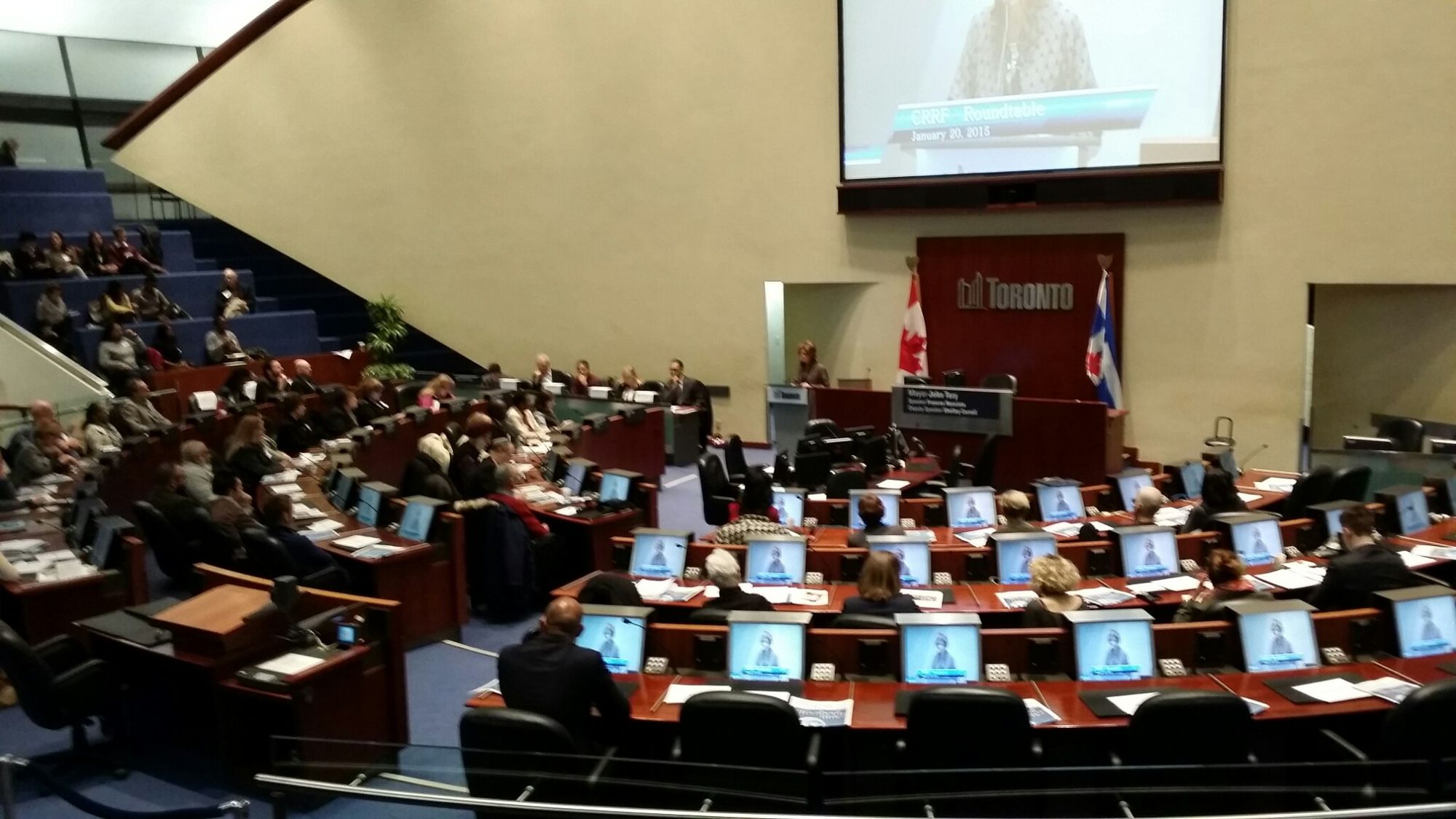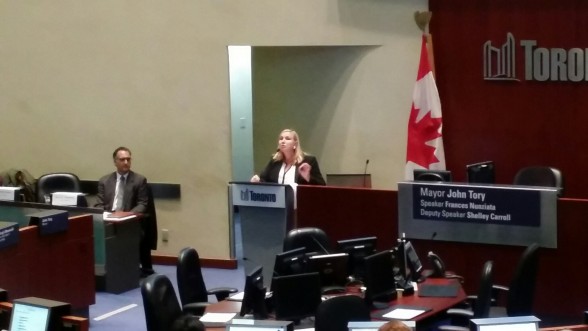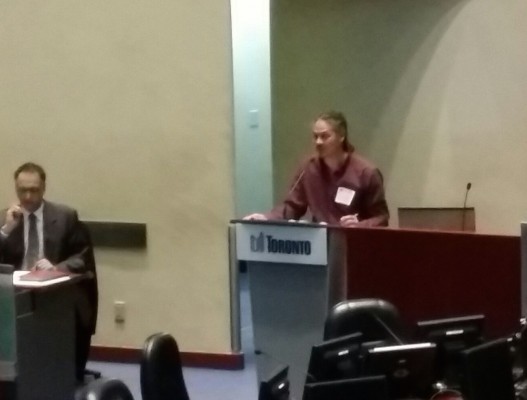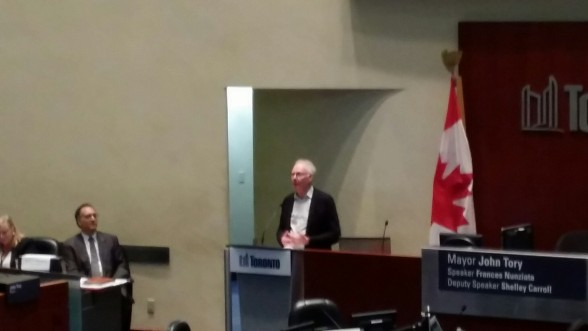How inclusive is Toronto?


(January 21, 2015) – A distinguished panel of thought leaders gathered on Tuesday, January 20th to discuss Toronto’s challenges in aligning the city’s everyday realities with its motto, “Diversity Our Strength”.
“I think Toronto is recognized as a leader in inclusion but I think we still have a long way to go,” Dr. Wendy Cukier, Vice President, Research and Innovation at Ryerson University told the audience. “There is nowhere else in the world that is viewed as successful as Toronto but there are still gaps.”
The Canadian Race Relations Foundation (CRRF) convened the panel in Toronto’s City Hall Council Chambers and it is the first in a six-city series of National Roundtables on cities as hubs of diversity. The series will focus on the opportunities and the challenges that lie ahead in building models of inclusion.
Rahul K. Bhardwaj, President and CEO of the Toronto Foundation moderated the panel that included Michael Adams, President and Founder of Environics Institute for Survey Research, Nation Cheong, Director, Youth Initiatives at United Way Toronto, and Wendy Cukier, Vice President, Research and Innovation at Ryerson University.

“I think that we have to be mindful that the issues in the 21st century, local issues are further perpetuated by global issues, so what young people are feeling on the streets of Toronto is further perpetuated by what they can access on the internet half-way around the world,” said Nation Cheong, Director, Youth Initiatives at United Way Toronto. “The 21st century has moved our consciousness beyond just a local conversation because young people are identifying with what their peers are experiencing across the world.”
Cheong noted that how well young people are doing in Toronto is a barometer of the city’s progress.
“While Toronto should be celebrated as a fantastic and welcoming city that has made progress, the issues that young people can identify with – whether it is because of the same faith, same racial background, the injustices they see their peers facing – leaves us in a very precarious place to not ignore the sense of vulnerability amongst our young people, if indeed they are the barometer of our progress,” he said.

Michael Adams, President and Founder of Environics Institute for Survey Research expressed concern over the growing income inequality in the city and Toronto’s capacity to address the issue.
“I am not as optimistic as my two colleagues are on Toronto,” he said. “We have a wonderfully educated population – downtown is doing very well, exurbs are doing very well, suburbs are not doing so well – trends toward income inequality are happening here. If we keep evolving the way we are going, we have vulnerability to racialized poverty and if that happens then you can start developing stereotypes – the majority looking at the minorities and the minorities looking at themselves, self-stereotyping.”
“One of the problems with Toronto is that we don’t have the autonomy and the taxation autonomy to be able to redress things like income inequality,” continued Michael Adams. “We are going to need some changes in order to not sleep-walk our way into a very, very divided city, again not just on the basis of socio-economic status which is highly correlated with a lot of these discriminations that we have been talking about.”
“This is not just a conversation for Toronto, it is a conversation for Canada and our big cities are going to need more, not just infrastructure grants, we are going to need money to help us deal with social problems,” noted Adams. “We have got a challenge.”
Celebrated as one of the most diverse cities in the world, Toronto is home to one of the largest and most diverse Aboriginal communities in Canada and has more than 200 distinct ethnic groups.
50% of Toronto’s population is foreign-born and increasingly diverse with respect to religion.
